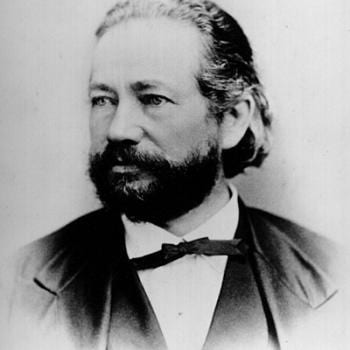
The aim of argument is differing in order to agree; the failure of argument is when you agree to differ.
-G.K. Chesterton, “Shaw on Marriage,” April 1, 1911, Collected Works, vol. 29, p. 62.
On Wednesday, here at TCC, I analyzed a recent Defend and Confirm podcast interview with Jonathan Leeman. Therein, I criticized some aspects of Leeman’s approach to the use of critical race theory (CRT) and intersectionality by Christians, specifically his suggestion (which he maintains) that, to some extent, intersectionality is an “unexpected ally” (the phrase used in his T4G speech) for Christians. More specifically, he argues that intersectionality is a candidate for co-belligerence in fighting “oppression.”
This morning, Neil Shenvi tweeted out the post which launched an exchange between Leeman, myself, Neil, and others:
Good post by @tlloydcline on a recent @JonathanLeeman interview. A model for constructive disagreement:
"'Allyship' [between Christians and Critical Race Theorists] does not truly extend even to semantic agreement."https://t.co/UWk6NODpbG
— Neil Shenvi (@NeilShenvi) October 9, 2020
Leeman offered as full and considered a response as is possible on Twitter (and I hope he writes more on the subject soon). Per usual, his engagement was thoughtful and winsome. Given all the interaction with Neil’s original tweet, I lost track of Leeman’s thread at one point (and I’m sure others did too). Even though Leeman and I are not in full agreement on the point at issue, what he says is important and I want others to be able to consider it fully. Below are the tweets in order (as best as I can tell) followed by my response thread and a few comments from Neil as well (I am reproducing the conversation here in the interest of clarity and demonstrating that a healthy exchange on the topic is possible. Hopefully it will encourage others to similarly discuss the issue.) (n.b. all the tweets are public.)
It must be said that the agreeable tenor and direction of this exchange is owed totally to Leeman, his receptive and measured response to my initial criticism. He didn’t have to do that but he chose to anyway. It was so enjoyable that I can’t wait to criticize him again soon! I was as cantankerous as I could be but I fear I have not justified the namesake of this column. I vow to do better in the future.
Neil (then Leeman):
Super insightful analysis by Timon. Really appreciated it. And hands down he understands critical theory better than me. Good engagment. My main push back, Timon, is, I don't think you're getting the point of co-belligerence. You say I offer a “hollow shell” and “de-radicalized”
— Jonathan Leeman (@JonathanLeeman) October 9, 2020
form of intersectionality that is “stripped of its transformative” power. Yes! Exactly! I’m not trying to employ, resurrect, defend, even moderate critical theory. I’m no defender of it. I call it a false religion…
— Jonathan Leeman (@JonathanLeeman) October 9, 2020
Co-belligerence means merely that we see a common enemy, at least in part, so we’ll together attack that enemy, even if all our theories for what that enemy is are why it’s a threat are different. Another example: Christianity and postmodernism…
— Jonathan Leeman (@JonathanLeeman) October 9, 2020
can be co-belligerents against Enlightenment (humanistic) foundationalism. We can both agree that human attempts to build truth on their own terms apart from God is ultimately about power. I wonder if our real difference…
— Jonathan Leeman (@JonathanLeeman) October 9, 2020
is in fact different historical judgments about the prevalence of oppression. Maybe I think there is more than you? If that were the case, I can understand why you would say any talk of co-belligerence is a sign of already having been subverted. Thoughts? [End]
— Jonathan Leeman (@JonathanLeeman) October 9, 2020
Oh, one more thing. You're right: advocates of critical theory won't like what I'm doing or agree with my version of it. I'm not interested in reaching them or even offering a more palatable version of critical theory. That's like saying I'd first want to first offer a…
— Jonathan Leeman (@JonathanLeeman) October 9, 2020
palatable or de-radicalized version of communism before agreeing to fight Nazis with them. I'm not trying to persuade the communists. I'm just trying to fight Nazis. That said, yes, I am trying to say to Christians who might be attracted to critical theory, "Hey, I understand…
— Jonathan Leeman (@JonathanLeeman) October 9, 2020
your attraction. You see oppression and you hate it. That makes sense. And maybe critical theorist have done a better job of raising the topic of oppression than some Christians have. Okay. I'm glad they are. Now, let's look to Scripture."
— Jonathan Leeman (@JonathanLeeman) October 9, 2020
Really, I think you and I are offering two pastoral strategies. Yours is, "Christians, that's bad bad bad." My strategy is, "It's bad bad bad, but let's take a moment to figure out why it looks like it's answering questions some of you have; and maybe what we Christians have…
— Jonathan Leeman (@JonathanLeeman) October 9, 2020
failed to address in the past." To you, my strategy looks "squishy." Perhaps. My historical and pastoral judgment might be wrong. Yet my sense is that, most fundamentally, that's where our differences lie. We're making slightly different historical and pastoral judgments.
— Jonathan Leeman (@JonathanLeeman) October 9, 2020
Again, I still disagree (maybe not formally, but materially) with Leeman on this. My comments are below. But it is a model of charitable exchange and the most pleasant back and forth (when a disagreement is in play) I’ve had all year on the context-less hellscape that is Twitter. I fully concur with this comment from Greg Kite (with whom I am not acquainted):
@JonathanLeeman I appreciate your willingness to continually throw yourself into these conversations when so many others will not engage with the Timon Clines and Neil Shenvis of the world. I stand with them in this case, but you deserve much credit for that!
— Gregg Kite (@GreggJKite) October 9, 2020
Quite right.
Although I am increasingly concerned by a certain cadre of bloviating bullies that seem to delight in being extreme for its own sake, more distressing to me over the past year or so has been the absence of people like Leeman, viz., those who are, perhaps, more sympathetic to one pole of the discussion than myself– though it is not clear that this is absolutely the case; I think Leeman and I agree on this bit more than was immediately apparent– but are nevertheless willing to attempt good faith engagement with the, shall we say, more concerned party. Leeman’s position/focus is the pastoral/local church element in all of this. That is admirable and appropriate. I think he is right that (as he said in the Defend and Confirm podcast interview) that local church solutions (as in most things) are indispensable to, and preferable for, the church’s walking through present struggles.
Leeman’s focus, it seems to me, dictates his disposition towards the topic at hand and is responsible for some of our disagreement. Leeman is a pastor, I am not. He has greater if different factors to consider than I do. That being said, my main contention throughout my initial critique and in the thread below is that 1) “oppression” is an insufficient cause to rally around. This is owed to its rather vague content at the outset, but more specifically, the niche definition given to it by critical race theorists. 2) At the end of the day, we (Christians) do not agree with CRT’ers on what “oppression” means. Even if we get specific and identify, say, racism as the oppression in focus, “racism” too has been redefined, thereby perpetuating our inability to employ it as a cause for co-belligerence.
All of this does not mean that I am unaware of or unsympathetic to the occasion that has given rise to some Christians latching on to CRT. As I note in the thread below, understanding the reasons that ideologies gain popular purchase is necessary to understanding the ideology itself. My only argument (to put it simplistically) is that CRT is just a really bad idea that will ultiamtely hamper, not further, Christian grappling with the very real issue in view (e.g. the history of racism in America, present racial tensions, and even race-related injustice).
My response:
Jonathan, thanks so much for reading & offering this winsome rebuttal (my responses here are in the same spirit): 1) my pt in criticizing your def of intersectionality (I know you weren’t affirming the *actual* thing) is the same as what Russell was getting at, at one pt…
— Timon Cline (@tlloydcline) October 9, 2020
After you apply your caveats you’re not even dealing w/ the real thing anymore so much so that I think you can’t use the label anymore. If CRT’ers themselves would t recognize it then I think it’s inappropriate to use the term. Find something else…
— Timon Cline (@tlloydcline) October 9, 2020
2) but obviously your pt is trying to find common ground w/those people (though I imagine who you really have in mind are Christians who are flirting w/it or woke-adjacent to borrow a woke term; I’m getting this from you remarks on the pastoral task in the D&C talk)…
— Timon Cline (@tlloydcline) October 9, 2020
But the difficulty w/co-belligerence in this context (&this is my main contention) is illustrated by the definitional problem w/intersectionality.the chasm btwn our understanding of the problem around which we’re supposedly rallying cannot be safely traversed…
— Timon Cline (@tlloydcline) October 9, 2020
Co-belligerence on a concrete policy issue like abortion is fairly simple. Even our opponents (generally) agree abt what we’re all arguing over. “Oppression” on the other hand, is amorphous. That means there’s much more room for error/confusion (as is IMO the case here)…
— Timon Cline (@tlloydcline) October 9, 2020
“Oppression” for CRT (& this is why I use the feminist example from you in the article) has particular, unique content (which necessarily includes Christians, actually, especially western white, evangelistic ones). As you know too their def of oppression…
— Timon Cline (@tlloydcline) October 9, 2020
… is totally structural/systemic (which effectively removes meaningful moral culpability); one of my big issues w/DiAngelo is actually that she removes the moral weight behind racism. It’s not a real sin issue anymore. Further, CRT evidence for oppression is…
— Timon Cline (@tlloydcline) October 9, 2020
problematic: disparities, hierarchy, etc = per se evidence of racism. That’s presumptuous & simplistic IMO.
So CRT’s diagnosis of the problem & investigatory methods & proposed solutions (which I haven’t mentioned here) are all problematic.— Timon Cline (@tlloydcline) October 9, 2020
Our agreement on what “oppression” means is far from certain. Even if you narrow “oppression” down to “racism” there’s not real agreement. This makes it difficult to find common ground & I argue, impossible to have co-belligerence…
— Timon Cline (@tlloydcline) October 9, 2020
One of the difficult things about critical social theories is the slipperiness of the vocab & conceptual slight of hand (ie antiracism sounds good but it’s not). The same is true of “oppression” (& to some extent “racism”)
— Timon Cline (@tlloydcline) October 9, 2020
At this point I lost track of the second half of Leeman’s response, but tried to pick it back up later on here:
This could totally be the case (we’d have to talk more [& off twitter] to find out) but 1) I’m sympathetic/not ignorant of the impulse/causation behind all of this; getting that is part of understanding it; eg the Frankfurt school can’t be understood unless you know that…
— Timon Cline (@tlloydcline) October 9, 2020
… they’re perplexed by the fact that the proletariat never developed class consciousness in an advanced industrial society like Germany & then went for fascism. That phenom drives much of their work. Similar things going on w/CRT & even the CLS movement…
— Timon Cline (@tlloydcline) October 9, 2020
(I’m even fairly sympathetic to Marx; his context/living conditions were abysmal). Anyway, my issue isn’t that the embrace of CRT evidences a (at least felt) void for many Christians on these issues. But I just think CRT is a terrible paradigm for analyzing, diagnosing, &…
— Timon Cline (@tlloydcline) October 9, 2020
treating the problem (it doesn’t rightly understand the problem); plus it’s hard to have co-belligerence w/another group/idea when they have more radical political goals in mind at the outset as part of their remedy. Those haven’t been agreed upon.
— Timon Cline (@tlloydcline) October 9, 2020
Anyway, I think our disagreement (as it stands) is on how useful the terms are. I think they’re far to slippery to be able to serve as a foundation for co-belligerence. It’s effectively talking past one another (Christians & CRT) & then pretending otherwise.
— Timon Cline (@tlloydcline) October 9, 2020
Leeman then replied with a final thread:
Thanks, Timon. (i) Twitter is a terrible place for this convo. Lol. (ii) I really do appreciate the engagement. When I saw your article yesterday, I thought, “I need to tweet that. It’s good.” But Neil beat me to it. (iii) Let me try one more time, and then, yes, leave the rest.
— Jonathan Leeman (@JonathanLeeman) October 9, 2020
I still think you're missing the pt of co-belligerence. Back to my Nazi/Comm example: you're telling me everything that's wrong with comm. And I'm going to keep agreeing. You can tell me they are fighting Nazis for the wrong reason or that they mis-define Nazism. I’ll agree…
— Jonathan Leeman (@JonathanLeeman) October 9, 2020
You can say, you’re not going to fool the communists about what you think of them. I’ll say, “I hope not.” My audience is Christian. Dyed-in-the-wool secular CT folk aren’t listening to 9Marks (lol)…
— Jonathan Leeman (@JonathanLeeman) October 9, 2020
If you want to make your pt, here’s what I think you need to say: there are no Nazis AS THE BIBLE WOULD DEFINE THEM. Or to lose the metaphor, you need to say, there is little to no oppression or James 2 partiality in America towards minorities, AS THE BIBLE WOULD DEFINE IT…
— Jonathan Leeman (@JonathanLeeman) October 9, 2020
If that’s your opinion (and if your judgment is correct), then your argument prevails. If what CT calls “oppression” is completely fabricated, and that it possesses no overlap w/the Bible’s understanding, then you’re correct and there is no space for co-belligerence…
— Jonathan Leeman (@JonathanLeeman) October 9, 2020
However, if oppression and partiality AS THE BIBLE WOULD DEFINE IT continue in any measure of significance, and if there is any overlap between what the Bible calls oppression and what CT calls oppression, then I’d say there’s probably room to speak of co-belligerence…
— Jonathan Leeman (@JonathanLeeman) October 9, 2020
Okay, now let me back up and offer a bit more perspective. I’m not someone who is out there encouraging Christians to read up on CT or intersectionality, or that it’s a tool for Christians to use, or any of that. This whole thing is not on my personal agenda…
— Jonathan Leeman (@JonathanLeeman) October 9, 2020
Instead, I’m (i) just academic enough to pick up bad books and ask, “Is anything true here?” (ii) and hopefully just pastoral enough to ask, “Why is this bad book proving attractive to members of the church?” At no point am I saying, “Hey, Christians, read this bad book”…
— Jonathan Leeman (@JonathanLeeman) October 9, 2020
However, I might say, “Lots of u have read this bad book and liked it. Let me offer an explanation for why: you liked what it said about X. That makes sense. When we turn to our Bibles, we see the Bible’s concern on topic X, too. But, friends, watch out. This remains a bad book.”
— Jonathan Leeman (@JonathanLeeman) October 9, 2020
That’s all I got for now, brother. Blessings.
— Jonathan Leeman (@JonathanLeeman) October 9, 2020
All I will say at this point (so as to not open up the whole debate again) is that, upon further reflection, I think the analogies used throughout the conversation have minimal utility. This is mainly owed to the nature of the ideology (CRT) being discussed. A concrete policy issue like abortion, which has clear parameters, is quite different. In general, both parties to the debate know what they are all talking about. Likewise, the Soviet-U.S. alliance against the Nazi’s represents an extreme case of geopolitical security, but also a concrete goal and enemy. When it comes, CRT, as I noted in the original post, the problem is that the enemy and goal(s) are ill-defined, obscure. In the case of CRT, oppression is defined to coincide with particular political goals, etc. to which any would be Christian co-belligerent would not necessarily realize they were signing on to at the outset. Further, within the CRT paradigm, Christians themselves would be implicated in oppression. To me, this make the analogies above unhelpful, but I digress.
Neil added many helpful comments throughout the conversation, this short thread below in particular:
I'll add here that the definition of "oppression" is a fundamental issue and I'll provide a pastorally relevant example. Imagine that a woman is in an emotionally and physically abusive marriage. A critical theorists tells her she is oppressed and that helps her understand her 1/
— Neil Shenvi (@NeilShenvi) October 9, 2020
lived experience. But then the CT elaborates that her oppression is common to all women and is part of a system of male privilege, dominance, and hegemony that needs to be interrogated and deconstructed. The woman begins to believe that her complementarian church and -indeed- 2/
— Neil Shenvi (@NeilShenvi) October 9, 2020
the Bible itself is deeply oppressive and that to be truly liberated, she needs to find non-oppressive sources of spirituality. This example shows exactly why it's dangerous to embrace "co-belligerency" in opposition oppression when the very definition of oppression is a 3/
— Neil Shenvi (@NeilShenvi) October 9, 2020
matter of disagreement. Embracing CTs understanding of oppression will put people on a very dangerous trajectory. Jonathan, three resources might be helpful: 1) Marilyn Frye's influential essay "Five Faces of Oppression" 2) Sensoy and DiAngelo's Is Everyone Really Equal? and 4/
— Neil Shenvi (@NeilShenvi) October 9, 2020
3) Collins' Intersectionality as Critical Social Theory
Those essays/books will really flesh out what CTs mean when they talk about "oppression."
Thanks for the great interaction! I appreciate it and am happy to engage more. Feel free to DM me.
5/5— Neil Shenvi (@NeilShenvi) October 9, 2020
I totally agree with all of this, obviously. Its my exact contention throughout. (And if you want to know more about CRT, etc., the titles just listed by Neil will get you there. I’m sure he’s reviewed them on his site as well.) This is also a good time to remind everyone that Neil was writing about the dangers of critical social theories in evangelicalism long before anyone else cared. That doesn’t mean he is the last word on this, but it does mean that he is first word of sorts.
Others (e.g. Josh Daws and Jeff Wright) chimed in (and made some good points) throughout and after Leeman had exited, but, eventually, we all moved on with our lives. At the very least, after this brief Twitter correspondence, I think we all understand one another a little better. #Progress
Image credit: @freestocks/Unsplash












